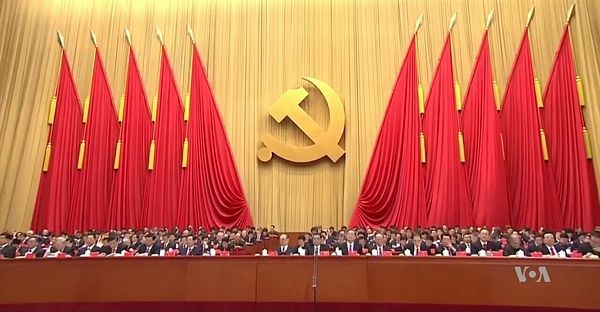All-powerful Xi Jinping may not fare well for foreign and economic prospects of China
Xi Jinping has become China’s all-powerful leader after the Chinese
Communist Party (CCP) has adopted a historic resolution to celebrate
its “major achievements and historic experiences”. The resolution not
only permits a third term for Xi but may also pave a way for him to rule
China for life. This makes other Chinese leaders with ambitions wary
as well as concerns China’s neighbours and the west block since the
communist country saw a rapid enhancement in military capabilities
and aggression under Xi’s rule. Moreover, Chinese conglomerates do
not see Xi’s continuation to power in good spirit. Xi has preferred
one-upmanship to hold tight control over state affairs, which is
reflected in the decisions he has taken. However, it risks China losing
the global influence and the economic achievement it has made in the
past two decades.
Xi had in 2018 changed constitutional provisions allowing himself to
stay longer than the two terms as president. Now the recent “historic
resolution” has consolidated Xi’s authority in the party and elevated
him to the status previously enjoyed only by Mao Zedong and Deng
Xiaoping. The latest historic resolution gives Xi an indefinite extension.
He holds all top civil and military positions. Experts believe that Xi
would serve for at least another 10 years, which means the incumbent
Politburo members lose the chance of promotions. “At present, only a
few-dozen-odd seventh-generation officials, who were born in the
1970s, have a vice-minister rank. Due to their relatively junior
positions, none of those neophyte ‘rising stars’ have yet demonstrated
that they have what it takes to reach the Politburo or higher,” said
Willy Wo-Lap Lam, a Senior Fellow at The Jamestown Foundation.
Unlike, Deng Xiaoping, the paramount leader of China, who opened
up China’s economy in the late 1970s, relinquished all important
positions and did not interfere in the country’s affairs directly.
However, Xi has become the chairman of everything in China and
continues to hold control of every aspect of governance, thus doing
away with the collective leadership and consensus-based
policymaking. He has sidelined Premier Li Keqiang too. Former Central
Party School professor Cai Xia said the current Chinese dispensation
has degenerated further into a political oligarchy. “It has grown even
more repressive and dictatorial. A personality cult now surrounds Xi,
who has tightened the party’s grip on ideology and eliminated what
little space there was for political speech and civil society,” Xia wrote
earlier.
China under Xi’s rule has seen increasing quarrels with its neighbours
such as South East Asian countries and Japan and South Korea over
territorial rights in the South China Sea and East China sea. Moreover,
it has locked horns with India in Ladakh, which saw bloody skirmishes.
Moreover, the oppression of Tibetans, Uyghur Muslims in Xinjiang,
people in Hong Kong, and military threats to Taiwan has tarnished
China’s image as imperialists and hegemonic power. The result of Xi’s
foreign and military policies are leading most of China neighbours to
join the western block. Japan, India, Australia– all major powers in
the Indo-Pacific region have created platforms that aim to isolate and
challenge China with the help of the US and its allies.
After Xi took reins of China in 2013, he stoked the furnace of
nationalism and vowed to achieve the “China Dream” of rejuvenation.
During this time, Xi began a mega anti-corruption drive that saw
punishing his opponents. In order to win popular votes among
Chinese people, Xi has carried out several crackdowns on private
businesses such as Alibaba, Maituan. Xi has indicated that he would
choose second-tier companies under his control than having Alibaba,
Tencent, Baidu and all the other Chinese tech giants. He also forced
foreign companies to share intellectual property with local
subsidiaries. Such impetuous decisions, which Xi took without little
or no constitutions, can affect the country’s prospects of getting
offshore investment.
Mismanagement of the Covid-19 pandemic, recent unprecedented
power crisis, fights with global powers aided by the heightened
nationalism by Xi is going to have negative effects on China economy.
China largest developer, Evergrande, is facing bankruptcy with USD
300 million in debt while the power crisis has derailed the
In such a scenario, consolidation of
power in the hand of one man can turn disastrous for China.













